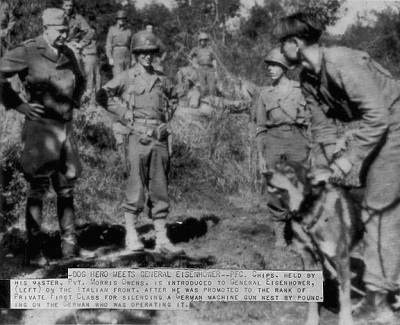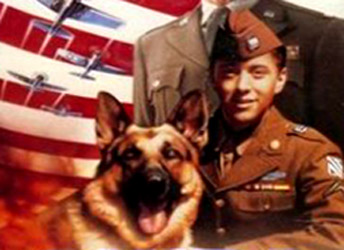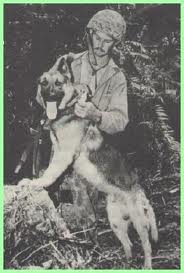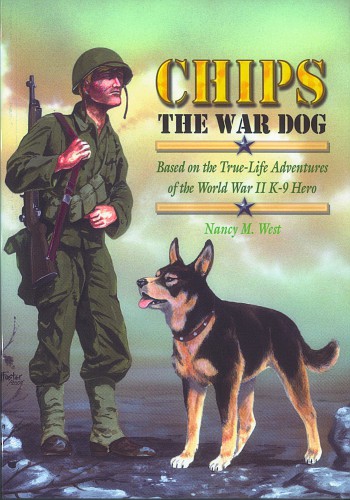 Shortly after the attack on Pearl Harbor, Dogs for Defense (DFD) was established. Word soon got out that the armed forces needed dogs. Thousands of patriotic pet owners across America responded by donating their pets for enlistment into the K-9 Corps. Little did a family from Pleasantville, NY know that their shepherd mix, Chips, would become the most decorated dog hero of World War II. Shortly after the attack on Pearl Harbor, Dogs for Defense (DFD) was established. Word soon got out that the armed forces needed dogs. Thousands of patriotic pet owners across America responded by donating their pets for enlistment into the K-9 Corps. Little did a family from Pleasantville, NY know that their shepherd mix, Chips, would become the most decorated dog hero of World War II. Spirited and quick to learn, Chips served bravely as a tank guard dog, traveling throughout Europe, Africa, and Italy with General Patton's Seventh Army. On one occasion, Chips alerted to an impending ambush. Then, with a phone cable attached to his collar, Chips ran back to base, dodging gunfire so that the endangered platoon could establish a communications line and ask for the backup they so desperately needed.  Perhaps the event that most exemplifies his courage and devotion occurred early one morning on a beach in Sicily. As he and his handler proceeded up the beach, they came under fire from a disguised pillbox. Chips broke free from his handler and launched himself right into the pillbox. Moments later several bitten and surrendering Italian soldiers emerged, all shepherded by a very determined Chips. Though wounded in the melee, Chips returned to duty that night, and alerted troops to an approaching group of Italians. This allowed his handler and squad time to capture all of them. Chips was a true hero. He was awarded a Silver Star for valor, and a Purple Heart for his wounds. The newspapers heralded his exploits. Unfortunately, the press attracted the attention of the Commander of the Order of the Purple Heart. He complained to both President Roosevelt and the War Department, claiming that by so honoring Chips, they were demeaning all the men who have been awarded a Purple  Heart. Chips' medals were taken away, and he was given an honorable discharge and returned to his family in Pleasantville. No military dog has received an official decoration since. Heart. Chips' medals were taken away, and he was given an honorable discharge and returned to his family in Pleasantville. No military dog has received an official decoration since. The debate surrounding the giving of metals to military dogs not only led to the denying of dogs the right to recognition for their efforts, but also paved the way for the military to classify them as "equipment" -- a classification that would cost them dearly. When the US pulled out of Vietnam, the military dogs were classified as "equipment" and left behind. Despite earnest efforts to bring the dogs home, the order to abandon them was firm. Over 4,000 dogs served in Vietnam, many sacrificing their lives. They saved thousands of American soldiers from death or injury. Stories vary as to what became of these valiant canines, but one thing is known to a certainty is that they shared all 24/7 with their handler. These dogs gave their full measure of devotion -- whatever the danger -- but they did not get to share the freedom of coming home. - Sandra Estrada 
|
